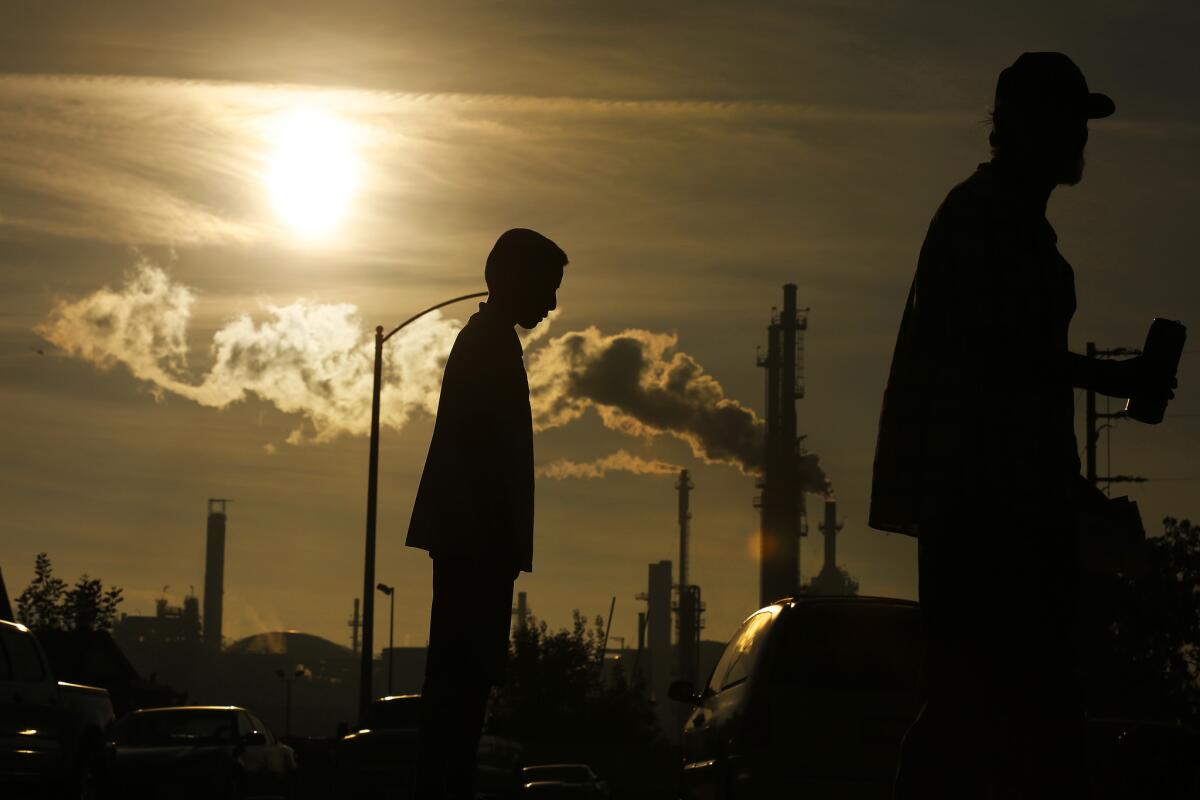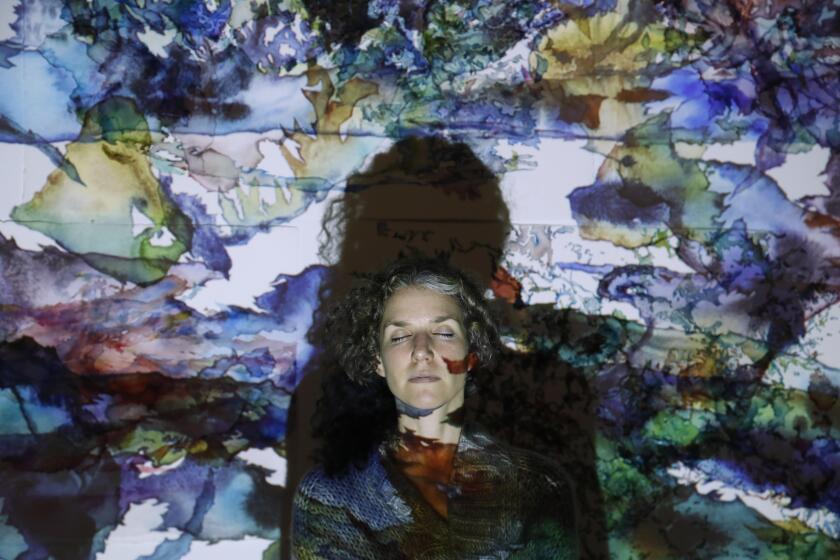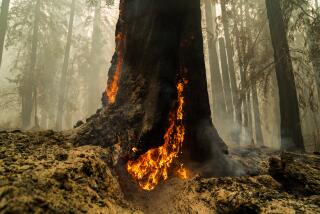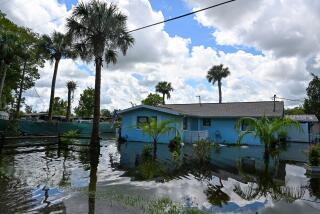Feeling distressed about climate change? Here’s how to manage it

Climate change is often framed as a scientific or technical issue. But for many, it’s an emotional one too.
It can be almost unbearable to witness entire towns obliterated by wildfires and islands leveled by storms. To see photos of koala bears singed by flames and dead seabirds washing ashore by the thousands. Or to read the latest confirmation that nations are woefully underperforming on their pledges to reduce greenhouse gas emissions.
“It hits you in the heart before it hits you in the head,” said Jennifer Atkinson, a senior lecturer in environmental humanities at the University of Washington in Bothell.
Our reactions to these grim facts take many forms, including sadness, despair, hopelessness, anger and anxiety.
An artist discovered the uneasy feelings she had about climate change were akin to mourning. She’s channeling those emotions through her art.
These are often manifestations of a deeper grief brought about by climate change. Experts say the phenomenon is growing , and it’s something we have to confront.
“We don’t want to get stuck in the space of grief forever,” Atkinson said. But “the ability to move forward is predicated on the ability to acknowledge losses and to openly grieve.”
The first step, she said, is to give yourself permission to feel whatever you are feeling, even if it seems silly or overblown, and to honor it.
“The message we get is that our grief is somehow deviant,” she said. But grief is a normal, healthy response to loss, examples of which are easy to find in a warming world.
Grappling with climate grief can also mean accepting that we have all — knowingly or not — contributed to the problem, said Rosemary Randall, a psychotherapist based in the U.K. who specializes in climate change.
“We have gone on doing things we shouldn’t have done for decades,” Randall said. “The guilt can’t be assuaged by somebody saying, ‘no, no no, it’s not your fault.’”
From there, experts say, it’s a matter of learning to manage the many sides of grief.
As anyone who has lost a loved one knows, grief ebbs and flows, taking strange forms and rearing its head at unexpected times. This is particularly true for climate grief, since the losses are ongoing, said Ashlee Cunsolo, an expert on ecological change and mental health at the Labrador Institute of Memorial University in Canada.
In some cases, people experience the classic five stages of grief, from denial to acceptance. Other times, it’s a more complicated and nonlinear process of coping with feelings as they arise and continually adjusting to the changing world.
Regardless, it’s important to find support.
Being around others who share similar concerns helps dispel the impression that everyone else is doing just fine and you are the outlier, Atkinson said. “There really is a sense of comfort and validation in discovering that that’s not true — that so many others are grieving these losses and experiencing anxiety about the future.”
Some people can find safe places to express their worries with friends and family.
Others can also turn to places like the Good Grief Network, an online resource for people experiencing ecological grief. The network coordinates meetings in several U.S. cities, and offers a manual for starting a support group in other communities.
Another organization called The Dinner Party facilitates dinners for young people who have experienced loss, and has recently started hosting events centered on environmental grief. (Carla Fernandez, a co-founder of the Dinner Party, said the idea occurred to her after the 2016 Soberanes fire threatened a favorite canyon in Big Sur.)
Whenever possible, Randall recommends that people get offline and connect in person.
“Conversations about grief are often full of silences and hesitation and uncertainty,” she said. “And social media communications are usually wham-bam fast.”
For some, seeking professional help may be the best option.
Andrew Bryant, a therapist based in Seattle, maintains the website climateandmind.org, which provides advice on finding a clinician. It also contains detailed descriptions of scholars’ growing understanding of ecological grief, and references for books and articles about climate and mental health.
Ultimately, people need to create habits that allow them to recognize and process their grief, but not be suffocated by it, said Atkinson. That could mean getting outside, making art or reading literature.
Atkinson teaches a class on environmental grief in which her students develop an emotional survival kit to help them cope. After attracting coverage by the Seattle Times last year, the class was ridiculed by some as more coddling for millennial snowflakes.
But Atkinson said that confronting grief takes more courage than looking away, which is the prevailing societal response to climate change.
And buried underneath that grief is something hopeful.
“We only grieve what we love,” Cunsolo said. “If we didn’t love something, we wouldn’t be sad to lose it.”








